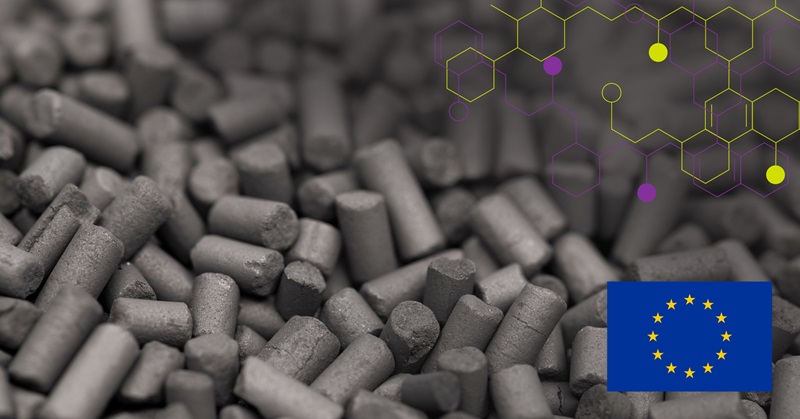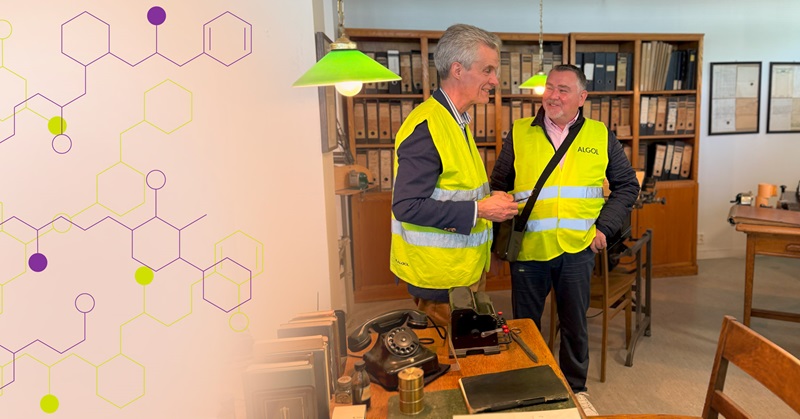We achieved most of our sustainability targets in 2023
At the beginning of 2022, we published our short-term sustainability targets for 2022-2024 in accordance with our strategy. These targets are based on a survey conducted within the company that clarified the key issues of our sustainability work in terms of our customers and other stakeholders.
In 2023, we achieved all our targets for occupational wellbeing and supply chain sustainability, as well as some of our safety targets. We are especially pleased with the gold medal achieved in the Ecovadis sustainability rating system.
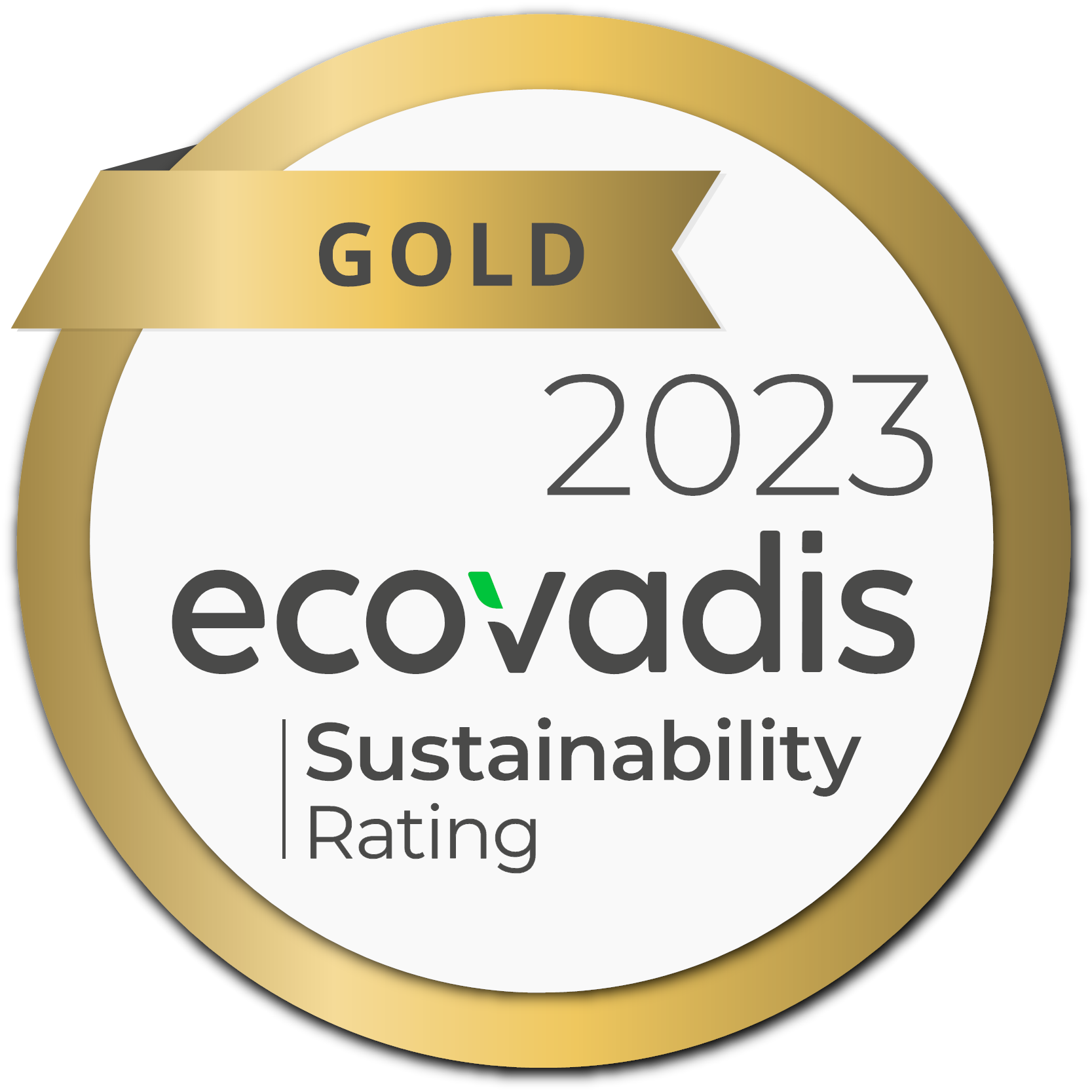
Our sustainability targets aim to ensure a healthy and well-functioning work community, the sustainable use of energy and resources, and continuous improvement in the quality of our operations. Through concrete actions aimed at achieving our targets, we also participate in the UN Sustainable Development Goals where applicable.
In 2023, our sustainability targets became an increasingly important part of our performance management system. In this way, our targets are an increasingly clear and concrete part of our day-to-day work.
Safety 
- Target: 0 accidents and 64 safety walks
- Result: 3 accidents and 67 safety walks
In 2023, employees at our production facilities had personal targets for safety walks and safety observations. Despite the large number of safety walks and safety observations, we did not achieve our target of zero accidents.
Altogether three accidents occurred during the year, two of which involved slipping. One accident was caused by a forklift having to brake suddenly due to an obstacle in its path, resulting in the driver hitting his head against the windscreen. These accidents led to a total of 25 days of sick leave. As a corrective measure, we reviewed safe working methods and updated our workplace risk assessments.
 Picture 1. Accidents and accident frequency rates 2020-2023.
Picture 1. Accidents and accident frequency rates 2020-2023.
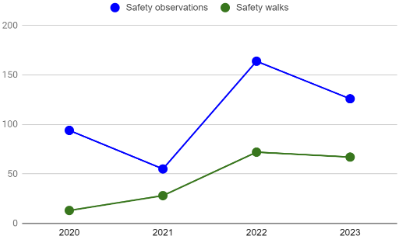
Occupational wellbeing 
- Target: eNPS 25
- Result: eNPS 35,5
In 2023, all Algol Chemicals employees (100%) completed Algol’s Code of Business Conduct training module.
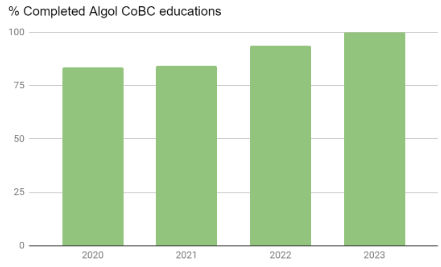
Picture 3. Completed Algol Code of Business conduct educations % / personnel 2020-2023.
Supply chain sustainability 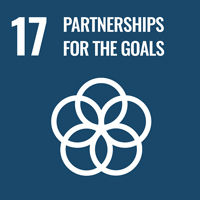
- Target: 20 supplier evaluations completed
- Result: 24 supplier evaluations completed
We require all our suppliers and subcontractors to sign our Supplier Code of Business Conduct. In addition, we have guidelines and principles for selecting and evaluating cooperation partners. New suppliers are also carefully evaluated from the perspective of sustainability before being approved. Suppliers who have already been selected as cooperation partners are re-evaluated as needed. In addition, 20 already approved suppliers are selected for evaluations each year. In 2023, we exceeded our target by evaluating 24 existing suppliers. In addition, we evaluated a large number of new suppliers.
Environment 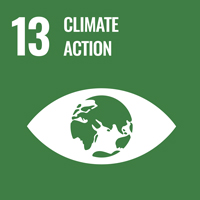
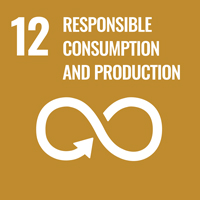
- Target: Sustainable use of resources and reduced emissions
- Result: Amount of chemical waste was reduced
As a distributor and packer of chemicals, the most significant environmental impacts are caused by the use of resources in our own production facilities, the storage of our products, and transportation. In 2023, we continued work to prevent the generation of waste due to product obsolescence. By monitoring product shelf life more effectively, optimising purchase quantities, and working together with supply chain operators, we were again able to reduce the total amount of waste from our products. The amount of non-hazardous waste was reduced by 33%, while the total amount of waste was reduced by just 2%.

Picture 4a. CO2 emissions, Kvarntorp production site.
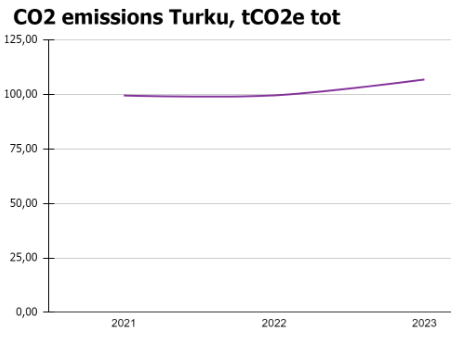 Picture 4b. CO2 emissions, Turku production site.
Picture 4b. CO2 emissions, Turku production site.
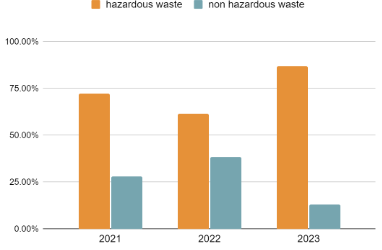
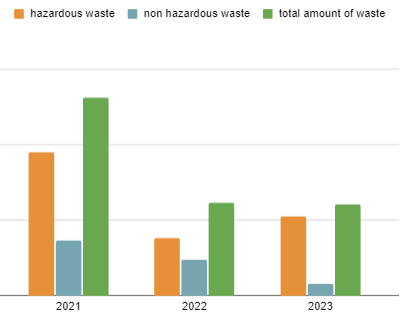
Picture 5. Amount of chemical waste 2021-2023.

